stdClass Object
(
[id] => 16281
[title] => Simply Life
[alias] => simply-life
[introtext] => The Dawn of Midnight/29 - Generated for ever: the world will not be abandoned
by Luigino Bruni
published in Avvenire on 05/11/2017
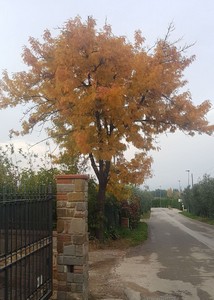 The Bible is not my sacred text, even though I also feel its sacredness, which I derive from its capacity to absorb the screams of the world. Jeremiah's cry of pain is almost fully let out as a scream. Job screams. Isaiah, too. So it is a strange sacred text composed of despair, failure and an implacable faith in a God who does not answer".
The Bible is not my sacred text, even though I also feel its sacredness, which I derive from its capacity to absorb the screams of the world. Jeremiah's cry of pain is almost fully let out as a scream. Job screams. Isaiah, too. So it is a strange sacred text composed of despair, failure and an implacable faith in a God who does not answer".
Guido Ceronetti, from a 2013 interview
“The word that Jeremiah the prophet spoke to Baruch the son of Neriah, when he wrote these words in a book at the dictation of Jeremiah, in the fourth year of Jehoiakim the son of Josiah, king of Judah: »Thus says the Lord, the God of Israel, to you, O Baruch: You said, ‘Woe is me! For the Lord has added sorrow to my pain. I am weary with my groaning, and I find no rest.’ (...) Thus says the Lord: (...) And do you seek great things for yourself? Seek them not, for behold, I am bringing disaster upon all flesh, declares the Lord. But I will give you your life as a prize of war in all places to which you may go«”. (Jeremiah 45:1-5).
[fulltext] => It is very nice that a biblical tradition (the Greek text of the Septuagint) chose to conclude the Book of Jeremiah with this blessing on Baruch. Jeremiah leaves his book with a word of YHWH for his disciple. We do not know much about Baruch. This notary-secretary appears in the Book of Jeremiah within the great story of the purchase of the field at Anathoth (chapter 32). Then he became much more than a scribe-secretary. He accompanied Jeremiah during the tremendous hours of the taking of Jerusalem, he transcribed his words twice in the scroll (chap. 36), read them to the community in the temple, and then followed him in Egypt. The text dates this blessing more than twenty years before the Babylonian occupation. But the final editor of the text - perhaps Baruch himself -, violating the chronological succession of facts, places this blessing given in Egypt at the end of Jeremiah's life. It’s like a testament, which can be written at any time in life, but which becomes effective and reveals itself only at the end. Like vocations, which take place in the chronos-time but are understood only at the end, in that kairos-time which is different and unique. Perhaps Baruch had to wait more than twenty years, passing through the tests of Jeremiah and his own, to understand the sense of that blessing. Understanding these different words always requires a lifetime, and sometimes one life is not enough.
Baruch is an image of the good disciple of a prophet. He was the pen of the voice. He learned the words of YHWH by listening to Jeremiah's words. But his sufferings and anxieties have been similar ('I am weary with my groaning'), perhaps, at certain decisive moments, they were the same. This association reveals to us some typical dynamics of the relationship between a prophet (or the one who received a charisma) and his disciples. At first there is an encounter with the prophet, in different contexts. Perhaps Baruch gets to know him while at work, doing his job as a transcriber-scribe of a contract. That very secular contract became a sacrament of another decisive call, which upsets his life and work.
The call of the disciple of the prophet is a distinct vocation, and it is united with that of the prophet. The prophet receives the word directly from YHWH. The disciple also receives a direct and personal word, but understands it only in a dynamic relationship with the prophet. Baruch knows that he can't carry out his task, he can't understand his word and fulfil his destiny, he can't flourish without a deep, mysterious but essential bond with Jeremiah’s task, destiny and flourishing. But the disciple's life is also a personal ’skin to skin’ experience; he is not only a follower of the prophet. He is a follower on multiple levels: that of the prophet, the voice that speaks in the prophet and the voice that speaks in his soul. The fatigue and beauty typical of prophets’ disciples lies in remaining and growing in this specific trialogue. For certain prophets a dialogue can be sufficient, for the disciples there is a need for an extra number, two are not enough. For this reason, the typical and most common mistake of those who follow a prophet is to reduce the trialogue to a dialogue: either because they cancel the voice in their own conscience, or because they skip the prophet to draw directly from the source of words without the prophet ("do you seek great things for yourself?"), or because - in the most common case - they identify the voice of the prophet with that of YHWH (and the prophet becomes an idol). You become an adult disciple if you do not reduce three to two.
The disciple, then, has an active, dynamic, responsible and creative role. A disciple who is only a disciple is not a good disciple. Baruch with time became a companion, partner, counsellor and perhaps even co-author of the words that came from Jeremiah but when they became written words they were also those of Baruch. The Bible - like life - is great because it is bigger than the words of its main protagonists. Who knows if in the long periods of waiting for the word, as during those very long ten days in the Bethlehem camp (42:7), Jeremiah did not dialogue with Baruch, if they did not share the sense of that silence, their uncertainties, fears and hopes. There is perhaps also a trace of these secret dialogues in the accusation that those survivors address him with: “Baruch the son of Neriah has set you against us, to deliver us into the hand of the Chaldeans” (43:3).
Those who have been or are disciples of a prophet know these silent dialogues well, the painful accompaniments of the soul, the search for their own non-light in the eyes of the other, and sometimes they have also touched the co-writing of donated words with their hands. If Jeremiah’s Baruch had only been a mere secretary, his name would not have been chosen later for a biblical book and other apocryphal and apocalyptic writings.
If, therefore, it is true that the disciple has an absolute need of the prophet, it is also true that the prophet needs his disciples, at least one. Who knows how many prophets have left no trace because of the absence of Baruchs, or because their Baruchs were not as adult, faithful and resilient as their prophets. There is this mysterious reciprocity at the heart of the charismatic life of the world, which makes prophecy, which is perhaps the most individual experience that exists under the sun, a collective experience, too, which transforms an inner voice into a social reality.
But in this relationship between Jeremiah and Baruch there is also a splendid image of every fatherhood and parenting. Our son gathers our words, writes our name. He assists and accompanies our sufferings, our failures, our fidelity and infidelity. He seals the purchase of our camp, and eventually sees that we don't return home, because the camp we had bought wasn't for us. He compiles our will. The son cannot enter that intimate sphere of consciousness where everyone listens to his voice alone, but helps us to understand and interpret it with his mere presence. One day, then, he receives our last blessing, and we realize that we could not spare him the suffering and anguish of all, and that the only true gift, 'prey' and inheritance was, simply, life. And then we exit the scene, hoping that we have simply done our duty, to the end. Every child writes our promise and is a witness, an inheritance and a notary of our will. The dawn of midnight.
We don't know much about the historical Jeremiah, but we know a lot, almost everything, about the Jeremiah of his book. And that is enough for us. His book does not tell us about the very last days of Jeremiah or about his death. He disappears like Moses or Isaiah. They do not die like heroes, because they did not live as heroes. They received a vocation, a task, a mission, and they have only carried it out, until the end. By living it, however, they have taught us what a vocation means, the meaning of a word that has now been forgotten and erased by our generation: forever. And then they leave, just like our friends, parents and teachers leave. And we are left alone.
This Jeremiah, seduced by his God, has seduced us. We have become a bit like Baruch. Perhaps we also met him while at work - what could be more vocational than work? -, and then he seduced us with his immense and infinite words, and we freely decided to follow him. We have witnessed the fall of Jerusalem and our temples - Jeremiah does not seduce us nor change us unless we read him sitting on the ruins of our religions, our people and our greatest dreams. And then we saw him carrying a yoke, breaking a jug, tortured and jailed, and we rejoiced when a eunuch freed him. Then we followed him to Egypt, we were deported with him, ending up surrounded by golden and shimmering idols. Once again we listened to his condemnation of idolatry, understanding that the temptation of idolatry was within us and we have tried to believe to that naked, invisible and different word again. And today we listened to this last blessing, and we heard that it was, it is a blessing for us, too: “But I will give you your life as a prize of war in all places to which you may go.” Also to find out that this blessing of Baruch is very similar to the other blessing given by Jeremiah to the Ethiopian eunuch (39:18), a rejected one, a stranger, a victim. The blessings of the prophets are above all blessings for the victims, the poor, the persecuted, the meek and the afflicted. These are the only beatitudes they know. They repeat them, and they will always repeat them to us, eternal beggars of our listening, which will always be too little.
We, too, must now let Jeremiah leave the scene. Not without that typical and great pain of those who take leave of a real friend. Knowing and hoping that he will come back, but detachment always hurts. And even this time, at the conclusion of the commentary on the sixth biblical book in Avvenire, my last word wants to be a multiple, great, sincere and emotional thanksgiving. To the Bible, because it continues to feed me without satiating me. To Jeremiah, an immense master of life, a companion necessary to learn the art of living. Thank you, readers who, like Baruch, have followed Jeremiah with me on this long journey, which lasted six months. They have flown by, because ‘one day with the prophets is like a thousand years elsewhere’. And as always and more than ever, thanks to Director Marco Tarquinio who continues to give me the gift of his generative trust.
From next Sunday we will resume the discourse on Ideal-Driven Organisations (IDO), with the sure knowledge that the words donated to us by Jeremiah will help us to discover better the grammar of ideals that become organizations and communities.
“And the Lord said unto me: ‘(...) the world will not be given over to oblivion’”. (The Book of the Apocalypse of Baruch the Son of Neriah)
Download article in pdf
[checked_out] => 0
[checked_out_time] => 0000-00-00 00:00:00
[catid] => 830
[created] => 2017-11-04 19:00:00
[created_by] => 64
[created_by_alias] => Luigino Bruni
[state] => 1
[modified] => 2020-08-23 18:42:02
[modified_by] => 609
[modified_by_name] => Super User
[publish_up] => 2017-11-10 10:45:00
[publish_down] => 0000-00-00 00:00:00
[images] => {"image_intro":"","float_intro":"","image_intro_alt":"","image_intro_caption":"","image_fulltext":"","float_fulltext":"","image_fulltext_alt":"","image_fulltext_caption":""}
[urls] => {"urla":false,"urlatext":"","targeta":"","urlb":false,"urlbtext":"","targetb":"","urlc":false,"urlctext":"","targetc":""}
[attribs] => {"article_layout":"","show_title":"","link_titles":"","show_tags":"","show_intro":"","info_block_position":"","info_block_show_title":"","show_category":"","link_category":"","show_parent_category":"","link_parent_category":"","show_associations":"","show_author":"","link_author":"","show_create_date":"","show_modify_date":"","show_publish_date":"","show_item_navigation":"","show_icons":"","show_print_icon":"","show_email_icon":"","show_vote":"","show_hits":"","show_noauth":"","urls_position":"","alternative_readmore":"","article_page_title":"","show_publishing_options":"","show_article_options":"","show_urls_images_backend":"","show_urls_images_frontend":""}
[metadata] => {"robots":"","author":"","rights":"","xreference":""}
[metakey] =>
[metadesc] => We have reached the end of the Book of Jeremiah. This great poet takes leave with a special blessing on Baruch, which opens up to the mystery of the following of the prophets, and to the typical and beautiful vocation of the disciple.
[access] => 1
[hits] => 2937
[xreference] =>
[featured] => 0
[language] => en-GB
[on_img_default] =>
[readmore] => 10452
[ordering] => 61
[category_title] => EN - The Dawn of Midnight
[category_route] => commenti-biblici/serie-bibliche/it-l-alba-della-mezzanotte
[category_access] => 1
[category_alias] => en-the-dawn-of-midnight
[published] => 1
[parents_published] => 1
[lft] => 127
[author] => Luigino Bruni
[author_email] => ferrucci.anto@gmail.com
[parent_title] => IT - Serie bibliche
[parent_id] => 773
[parent_route] => commenti-biblici/serie-bibliche
[parent_alias] => serie-bibliche
[rating] => 0
[rating_count] => 0
[alternative_readmore] =>
[layout] =>
[params] => Joomla\Registry\Registry Object
(
[data:protected] => stdClass Object
(
[article_layout] => _:default
[show_title] => 1
[link_titles] => 1
[show_intro] => 1
[info_block_position] => 0
[info_block_show_title] => 1
[show_category] => 1
[link_category] => 1
[show_parent_category] => 1
[link_parent_category] => 1
[show_associations] => 0
[flags] => 1
[show_author] => 0
[link_author] => 0
[show_create_date] => 1
[show_modify_date] => 0
[show_publish_date] => 1
[show_item_navigation] => 1
[show_vote] => 0
[show_readmore] => 0
[show_readmore_title] => 0
[readmore_limit] => 100
[show_tags] => 1
[show_icons] => 1
[show_print_icon] => 1
[show_email_icon] => 1
[show_hits] => 0
[record_hits] => 1
[show_noauth] => 0
[urls_position] => 1
[captcha] =>
[show_publishing_options] => 1
[show_article_options] => 1
[save_history] => 1
[history_limit] => 10
[show_urls_images_frontend] => 0
[show_urls_images_backend] => 1
[targeta] => 0
[targetb] => 0
[targetc] => 0
[float_intro] => left
[float_fulltext] => left
[category_layout] => _:blog
[show_category_heading_title_text] => 0
[show_category_title] => 0
[show_description] => 0
[show_description_image] => 0
[maxLevel] => 0
[show_empty_categories] => 0
[show_no_articles] => 1
[show_subcat_desc] => 0
[show_cat_num_articles] => 0
[show_cat_tags] => 1
[show_base_description] => 1
[maxLevelcat] => -1
[show_empty_categories_cat] => 0
[show_subcat_desc_cat] => 0
[show_cat_num_articles_cat] => 0
[num_leading_articles] => 0
[num_intro_articles] => 14
[num_columns] => 2
[num_links] => 0
[multi_column_order] => 1
[show_subcategory_content] => -1
[show_pagination_limit] => 1
[filter_field] => hide
[show_headings] => 1
[list_show_date] => 0
[date_format] =>
[list_show_hits] => 1
[list_show_author] => 1
[list_show_votes] => 0
[list_show_ratings] => 0
[orderby_pri] => none
[orderby_sec] => rdate
[order_date] => published
[show_pagination] => 2
[show_pagination_results] => 1
[show_featured] => show
[show_feed_link] => 1
[feed_summary] => 0
[feed_show_readmore] => 0
[sef_advanced] => 1
[sef_ids] => 1
[custom_fields_enable] => 1
[show_page_heading] => 0
[layout_type] => blog
[menu_text] => 1
[menu_show] => 1
[secure] => 0
[helixultimatemenulayout] => {"width":600,"menualign":"right","megamenu":0,"showtitle":1,"faicon":"","customclass":"","dropdown":"right","badge":"","badge_position":"","badge_bg_color":"","badge_text_color":"","layout":[]}
[helixultimate_enable_page_title] => 1
[helixultimate_page_title_alt] => Le levatrici d'Egitto
[helixultimate_page_subtitle] => Commenti Biblici
[helixultimate_page_title_heading] => h2
[page_title] => The Dawn of Midnight
[page_description] =>
[page_rights] =>
[robots] =>
[access-view] => 1
)
[initialized:protected] => 1
[separator] => .
)
[displayDate] => 2017-11-04 19:00:00
[tags] => Joomla\CMS\Helper\TagsHelper Object
(
[tagsChanged:protected] =>
[replaceTags:protected] =>
[typeAlias] =>
[itemTags] => Array
(
[0] => stdClass Object
(
[tag_id] => 18
[id] => 18
[parent_id] => 1
[lft] => 33
[rgt] => 34
[level] => 1
[path] => luigino-bruni
[title] => Luigino Bruni
[alias] => luigino-bruni
[note] =>
[description] =>
[published] => 1
[checked_out] => 0
[checked_out_time] => 0000-00-00 00:00:00
[access] => 1
[params] => {"tag_layout":"","tag_link_class":"label label-info"}
[metadesc] =>
[metakey] =>
[metadata] => {"author":"","robots":""}
[created_user_id] => 611
[created_time] => 2015-11-14 21:22:09
[created_by_alias] =>
[modified_user_id] => 609
[modified_time] => 2020-08-01 10:35:46
[images] => {"image_intro":"","float_intro":"","image_intro_alt":"","image_intro_caption":"","image_fulltext":"","float_fulltext":"","image_fulltext_alt":"","image_fulltext_caption":""}
[urls] => {}
[hits] => 129789
[language] => *
[version] => 1
[publish_up] => 2015-11-14 20:22:09
[publish_down] => 2015-11-14 20:22:09
)
[1] => stdClass Object
(
[tag_id] => 38
[id] => 38
[parent_id] => 1
[lft] => 73
[rgt] => 74
[level] => 1
[path] => geremia
[title] => Geremia
[alias] => geremia
[note] =>
[description] =>
[published] => 1
[checked_out] => 0
[checked_out_time] => 0000-00-00 00:00:00
[access] => 1
[params] => {"tag_layout":"","tag_link_class":"label label-info"}
[metadesc] =>
[metakey] =>
[metadata] => {"author":"","robots":""}
[created_user_id] => 609
[created_time] => 2017-08-26 19:25:01
[created_by_alias] =>
[modified_user_id] => 609
[modified_time] => 2020-08-10 04:38:16
[images] => {"image_intro":"","float_intro":"","image_intro_alt":"","image_intro_caption":"","image_fulltext":"","float_fulltext":"","image_fulltext_alt":"","image_fulltext_caption":""}
[urls] => {}
[hits] => 9090
[language] => it-IT
[version] => 1
[publish_up] => 2017-08-26 17:25:01
[publish_down] => 2017-08-26 17:25:01
)
[2] => stdClass Object
(
[tag_id] => 39
[id] => 39
[parent_id] => 1
[lft] => 75
[rgt] => 76
[level] => 1
[path] => avvenire
[title] => Avvenire
[alias] => avvenire
[note] =>
[description] =>
[published] => 1
[checked_out] => 0
[checked_out_time] => 0000-00-00 00:00:00
[access] => 1
[params] => {"tag_layout":"","tag_link_class":"label label-info"}
[metadesc] =>
[metakey] =>
[metadata] => {"author":"","robots":""}
[created_user_id] => 609
[created_time] => 2017-08-26 19:25:01
[created_by_alias] =>
[modified_user_id] => 609
[modified_time] => 2020-08-10 04:38:16
[images] => {"image_intro":"","float_intro":"","image_intro_alt":"","image_intro_caption":"","image_fulltext":"","float_fulltext":"","image_fulltext_alt":"","image_fulltext_caption":""}
[urls] => {}
[hits] => 13133
[language] => it-IT
[version] => 1
[publish_up] => 2017-08-26 17:25:01
[publish_down] => 2017-08-26 17:25:01
)
[3] => stdClass Object
(
[tag_id] => 43
[id] => 43
[parent_id] => 1
[lft] => 83
[rgt] => 84
[level] => 1
[path] => the-dawn-of-midnight
[title] => the-dawn-of-midnight
[alias] => the-dawn-of-midnight
[note] =>
[description] =>
[published] => 1
[checked_out] => 0
[checked_out_time] => 2020-08-10 04:38:16
[access] => 1
[params] => {}
[metadesc] =>
[metakey] =>
[metadata] => {}
[created_user_id] => 609
[created_time] => 2020-08-10 04:38:16
[created_by_alias] =>
[modified_user_id] => 0
[modified_time] => 2020-08-10 04:38:16
[images] => {}
[urls] => {}
[hits] => 5045
[language] => *
[version] => 1
[publish_up] => 2020-08-10 04:38:16
[publish_down] => 2020-08-10 04:38:16
)
)
)
[slug] => 16281:simply-life
[parent_slug] => 773:serie-bibliche
[catslug] => 830:en-the-dawn-of-midnight
[event] => stdClass Object
(
[afterDisplayTitle] =>
[beforeDisplayContent] =>
[afterDisplayContent] =>
)
[text] => The Dawn of Midnight/29 - Generated for ever: the world will not be abandoned
by Luigino Bruni
published in Avvenire on 05/11/2017
 The Bible is not my sacred text, even though I also feel its sacredness, which I derive from its capacity to absorb the screams of the world. Jeremiah's cry of pain is almost fully let out as a scream. Job screams. Isaiah, too. So it is a strange sacred text composed of despair, failure and an implacable faith in a God who does not answer".
The Bible is not my sacred text, even though I also feel its sacredness, which I derive from its capacity to absorb the screams of the world. Jeremiah's cry of pain is almost fully let out as a scream. Job screams. Isaiah, too. So it is a strange sacred text composed of despair, failure and an implacable faith in a God who does not answer".
Guido Ceronetti, from a 2013 interview
“The word that Jeremiah the prophet spoke to Baruch the son of Neriah, when he wrote these words in a book at the dictation of Jeremiah, in the fourth year of Jehoiakim the son of Josiah, king of Judah: »Thus says the Lord, the God of Israel, to you, O Baruch: You said, ‘Woe is me! For the Lord has added sorrow to my pain. I am weary with my groaning, and I find no rest.’ (...) Thus says the Lord: (...) And do you seek great things for yourself? Seek them not, for behold, I am bringing disaster upon all flesh, declares the Lord. But I will give you your life as a prize of war in all places to which you may go«”. (Jeremiah 45:1-5).
[jcfields] => Array
(
)
[type] => intro
[oddeven] => item-odd
)







 “The longer we are uprooted from professional activities and our private lives, the more it brings home to us how fragmentary our lives are compared with those of our parents. Our spiritual existence remains incomplete.”
“The longer we are uprooted from professional activities and our private lives, the more it brings home to us how fragmentary our lives are compared with those of our parents. Our spiritual existence remains incomplete.”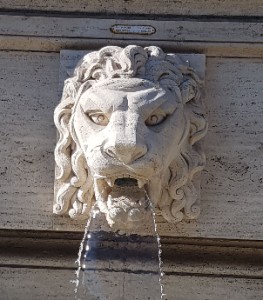 “A nation that still believes in itself holds fast to its own god. (...) it projects its joy in itself, its feeling of power, into a being to whom one may offer thanks. He who is rich will give of his riches; a proud people need a god to whom they can make sacrifices... (...) Wherever the will to power begins to decline, in whatever form, there is always an accompanying decline physiologically, a decadence. The divinity of this decadence ... is converted perforce into a god of the physiologically degraded, of the weak.”
“A nation that still believes in itself holds fast to its own god. (...) it projects its joy in itself, its feeling of power, into a being to whom one may offer thanks. He who is rich will give of his riches; a proud people need a god to whom they can make sacrifices... (...) Wherever the will to power begins to decline, in whatever form, there is always an accompanying decline physiologically, a decadence. The divinity of this decadence ... is converted perforce into a god of the physiologically degraded, of the weak.”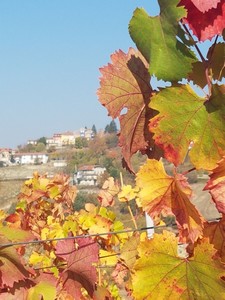 If God exists, today, more than ever before, he needs someone who, if he does not know who he is, can say at least who he is not. We need to change God in order to preserve Him, and so that he may preserve us ".
If God exists, today, more than ever before, he needs someone who, if he does not know who he is, can say at least who he is not. We need to change God in order to preserve Him, and so that he may preserve us ".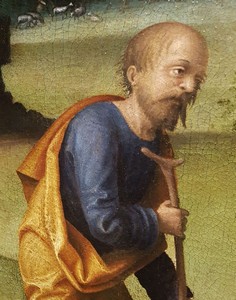 “Greet the banks of the Jordan
“Greet the banks of the Jordan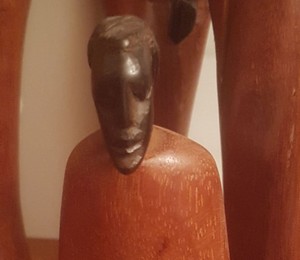 “The duty to neighbours is not confined only to those who live next door. (...) The Samaritan is linked to the wounded Israelite through the event itself... (...) Once he finds himself in this situation, he is in a new ‘neighbourhood’. (...) There are few non-neighbours left in the world today.”
“The duty to neighbours is not confined only to those who live next door. (...) The Samaritan is linked to the wounded Israelite through the event itself... (...) Once he finds himself in this situation, he is in a new ‘neighbourhood’. (...) There are few non-neighbours left in the world today.”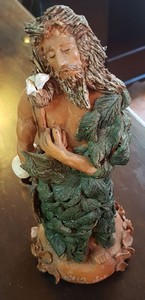 Cassandra: “Has my arrow hit the mark or has it missed? Or am I a false prophet, a chatterer beggar? Swear an oath that you have not heard these things before and that I know well all the ancient sins of this house. (...) And yet again! Ah! The dreadful pain of prophecy fulfilled spins me around and – there! It begins to shake me!”
Cassandra: “Has my arrow hit the mark or has it missed? Or am I a false prophet, a chatterer beggar? Swear an oath that you have not heard these things before and that I know well all the ancient sins of this house. (...) And yet again! Ah! The dreadful pain of prophecy fulfilled spins me around and – there! It begins to shake me!”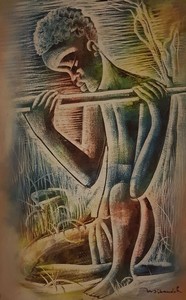 “If I read a book and it makes my whole body so cold no fire can warm me I know that is poetry".
“If I read a book and it makes my whole body so cold no fire can warm me I know that is poetry". “Even if you don’t read it, you are in the Bible .“
“Even if you don’t read it, you are in the Bible .“ 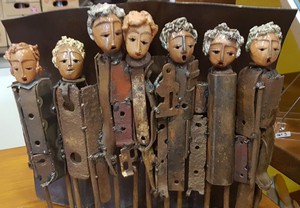 “Even if I knew that tomorrow the world would go to pieces, I would still plant my apple tree.”
“Even if I knew that tomorrow the world would go to pieces, I would still plant my apple tree.”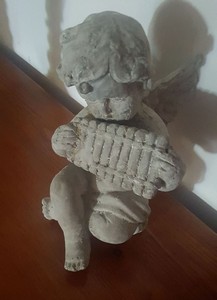
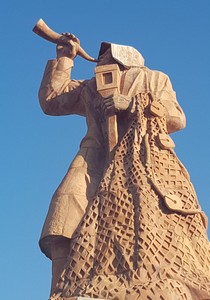 “...he is perfect to whom the entire world is as a foreign land. The tender soul has fixed his love on one spot in the world; the strong man has extended his love to all places; the perfect man has extinguished his.”
“...he is perfect to whom the entire world is as a foreign land. The tender soul has fixed his love on one spot in the world; the strong man has extended his love to all places; the perfect man has extinguished his.”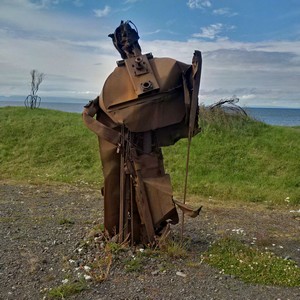 “Answer not a fool according to his folly, / lest you be like him yourself. / Answer a fool according to his folly, / lest he be wise in his own eyes.”
“Answer not a fool according to his folly, / lest you be like him yourself. / Answer a fool according to his folly, / lest he be wise in his own eyes.”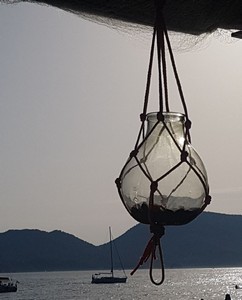 Once Rabbi Mosche of Kobryn said, 'I see that all the words I said did not even find one who had welcomed them in their heart. The words that come from the heart, in fact, go into the heart; but if they find none, then to the man who said them God gives the grace that they do not err without a dwelling, but they all return to the heart from which they came out’ ... Some time after his death a friend said, 'If he had someone to talk to, he would still live.'
Once Rabbi Mosche of Kobryn said, 'I see that all the words I said did not even find one who had welcomed them in their heart. The words that come from the heart, in fact, go into the heart; but if they find none, then to the man who said them God gives the grace that they do not err without a dwelling, but they all return to the heart from which they came out’ ... Some time after his death a friend said, 'If he had someone to talk to, he would still live.'